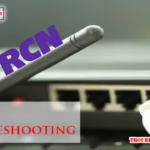Struggling with your Beko washing machine can be more than just a minor inconvenience; it can disrupt your entire day. You rely on your washer to keep your clothes clean and fresh, so when it doesn’t work as expected, frustration can quickly set in.
But before you consider calling a technician or replacing your machine, you might be able to solve the problem yourself with a bit of troubleshooting. Imagine saving time, money, and stress by knowing exactly what steps to take when your washer acts up.
This guide is here to help you do just that. By the end of this article, you’ll feel empowered with the knowledge to tackle common Beko washing machine issues, ensuring your appliance runs smoothly and efficiently. Let’s dive in and get your laundry routine back on track!

Credit: www.beko.com
Common Problems
Every household has faced the frustration of a washing machine acting up. Whether it’s refusing to start or making sounds reminiscent of a rock concert, Beko washing machines are no exception. Understanding these common issues can help you keep your laundry routine smooth. Let’s dive into some frequent problems and how you can tackle them with ease.
Machine Not Starting
Imagine you’re ready to tackle a mountain of laundry, but your Beko washing machine stays silent. First, check if the power cord is plugged in securely. A loose connection can be the culprit.
Next, inspect the door. The machine won’t start if the door isn’t properly closed. It’s a safety feature, ensuring water doesn’t spill out. Also, ensure the outlet is functioning by testing it with another appliance.
Sometimes, a simple reset can do wonders. Unplug the machine for a few minutes and then plug it back in. You’ve probably done this with your computer and it’s a trick that often works with appliances too.
Water Not Filling
A washing machine without water is like a car without fuel. Start by checking the water supply. Is the tap fully turned on? It’s easy to overlook.
Inspect the hoses for any kinks or blockages. A simple straightening or cleaning can solve the issue. Don’t forget to examine the water filter—clogs can prevent water from entering the drum.
Should the problem persist, it might be time to examine the water inlet valve. It’s worth noting that these components can wear out over time and may need replacing.
Drum Not Spinning
A stationary drum means clothes aren’t getting the wash they deserve. Check if the load is too heavy or uneven. Redistributing the laundry can often get the drum spinning again.
Look at the belt connecting the motor to the drum. If it’s worn or broken, it needs replacing. It’s similar to a bicycle chain—without it, movement ceases.
Should you hear a clicking sound, it might be the motor trying to work. This could indicate a more complex issue, potentially needing professional attention.
Excessive Noise
Noisy machines can be unsettling, especially if you’re trying to relax. First, ensure the machine is level and stable. A wobbly machine can produce quite a racket.
Look for items like coins or buttons trapped between the drum and the tub. These small objects can make a big noise. Also, check the bearings. Worn bearings can lead to loud, grinding sounds.
Consider the noise a warning sign—ignoring it could lead to more severe problems down the line. Wouldn’t you prefer a peaceful home over a noisy nuisance?
Understanding these common Beko washing machine problems can save you time, frustration, and potentially costly repairs. Next time your machine misbehaves, you’ll know exactly where to look. Is your machine whispering for help? Listen closely and take action.

Credit: device.report
Error Codes
Encountering error codes on a Beko washing machine can indicate specific issues needing attention. Identifying these codes helps troubleshoot and resolve problems quickly. Regular maintenance ensures efficient operation.
When your Beko washing machine flashes an error code, it can be frustrating. But understanding what these codes mean can save you time and stress. Instead of calling a technician right away, you might be able to troubleshoot the issue yourself. Let’s look at some common Beko washing machine error codes and how you can tackle them.E01 Code
The E01 error code often indicates a problem with the door lock. If your washing machine displays this code, check if the door is properly closed. Sometimes, a gentle push is all it needs to latch securely. Ensure there’s no laundry obstructing the door. Clothes caught in the seal can prevent the door from closing properly. Ask yourself, did you hear the click when you closed the door? That sound confirms the door is locked.E02 Code
The E02 error code usually points to water supply issues. First, confirm that the water tap is fully turned on. A partially open tap might not provide enough water pressure. Inspect the inlet hose for kinks or blockages. A blocked hose can restrict water flow, causing the error. Consider if you’ve had issues with water pressure at home lately. This could affect the washer’s ability to fill up.E03 Code
An E03 code typically signals a drainage problem. Check the drain hose for any clogs or kinks. A straightforward adjustment might resolve the issue. Examine the pump filter for any debris or lint build-up. Cleaning it out can often clear the error. Have you recently washed items that shed a lot of fibers? This could be the culprit behind the blockage.E04 Code
The E04 code often indicates an overfill issue. This might be due to a faulty water level sensor. Try resetting your machine first by unplugging it for a few minutes. Ensure the detergent drawer isn’t overfilled. Excess detergent can cause excessive suds, tricking the machine into thinking it’s overfilled. Question whether you’ve been using the right amount of detergent. Sometimes, less is more when it comes to avoiding overfill errors. Understanding these error codes can empower you to fix minor issues on your own. It can also help you communicate more effectively with a technician if needed. Next time your Beko washing machine flashes a code, you’ll know exactly where to start.Basic Maintenance Tips
Proper maintenance of your Beko washing machine ensures its efficiency. It reduces the chance of unexpected breakdowns. Regular upkeep keeps your appliance running smoothly. Below are some essential maintenance tips.
Cleaning The Filter
Filters in washing machines collect lint and debris. Cleaning them regularly prevents blockages. Start by unplugging the machine for safety. Locate the filter at the front or bottom of the machine. Remove it gently. Wash it under running water. Ensure all debris is cleared. Put the filter back securely. This simple task can improve machine performance.
Checking Hoses
Hoses are vital for water flow. Inspect them for signs of wear. Look for cracks or leaks. Tighten any loose connections. Replace damaged hoses immediately. This prevents water leaks and flooding. It’s a quick check that saves trouble later.
Inspecting The Drum
The drum should be clean and free of objects. Check for any items left after a wash. Remove them to avoid damage. Spin the drum manually. Listen for unusual sounds. If you hear grinding, inspect further. A clean drum ensures clothes are washed properly.
Quick Fixes
Picture this: your laundry pile is growing, and your Beko washing machine suddenly decides to act up. Frustrating, right? Before you start stressing, there are some quick fixes you can try. These simple steps can save you time and potentially a service call. Let’s dive into some practical solutions.
Resetting The Machine
Sometimes, all your washing machine needs is a reset. It’s like giving it a fresh start. Unplug the machine for a few minutes and plug it back in. This can clear any minor glitches that might be causing trouble. Have you ever felt like rebooting your brain after a long day? Your washing machine feels the same way.
Balancing The Load
Overloading or uneven distribution can lead to noisy cycles and poor wash results. Make sure your clothes are spread out evenly. If the machine sounds like it’s off on an adventure, check the load balance. A simple redistribution can make a world of difference. Balance is key, not just in life but in laundry too.
Adjusting Water Pressure
Low water pressure can affect the washing cycle. Check your home’s water pressure and ensure the supply valve is fully open. Sometimes, a small tweak is all it takes to improve performance. Have you ever tried to fill a pool with a garden hose? Frustrating, isn’t it? Your washing machine feels the same with low water pressure.
These quick fixes can be lifesavers when your Beko washing machine acts up. Have you tried any of these before? What was your experience? Share your thoughts and let’s keep the laundry day blues at bay together!
When To Call A Professional
Facing persistent issues with your Beko washing machine? Strange noises or leaks might need expert attention. Professional help ensures safe and accurate repairs, preventing further damage.
When your Beko washing machine shows signs of trouble, it’s essential to know when to call a professional. Not all issues can be solved at home. Some problems demand expert attention to ensure safety and functionality. Understanding when to contact a technician can save time and prevent further damage.Persistent Issues
If your washing machine repeatedly shows the same problem, it’s time for help. Constant leaks or strange noises might mean something’s wrong inside. Don’t ignore these signs. A professional can pinpoint the exact issue. This helps avoid bigger, more costly repairs in the future.Electrical Problems
Electric issues need expert hands. If fuses blow or circuits trip, call a professional. They have the tools and knowledge to handle electrical concerns safely. Attempting to fix these on your own might be dangerous. It’s best to leave electrical troubleshooting to those trained for it.Machine Not Responding
When your washing machine doesn’t start, it can be frustrating. Check basic things like the power supply first. If everything seems fine but the machine is still unresponsive, it’s time for expert advice. Technicians can diagnose internal faults that aren’t visible. This ensures your machine gets back to working order quickly.
Credit: device.report
Frequently Asked Questions
Why Is My Beko Washing Machine Not Starting?
Check the power supply. Ensure the door is closed properly. Look at the start button.
What Does The E18 Error Code Mean?
E18 indicates a drainage issue. Check the drain hose and filter for clogs.
How Do I Reset My Beko Washing Machine?
Unplug the machine for a minute. Plug it back in. This resets most models.
Why Is My Beko Washer Not Draining Water?
Check the drain pump and hose. They might be blocked or damaged.
How Can I Fix A Noisy Beko Washing Machine?
Ensure the machine is level. Check for loose items inside. Inspect the drum for damage.
Conclusion
Troubleshooting your Beko washing machine can save time and stress. Simple issues often have straightforward solutions. Check basic settings before calling for repairs. Keep an eye on common problems like noise or water leaks. Regular maintenance helps avoid bigger problems.
Clean filters and check hoses regularly. A little effort can keep your machine running smoothly. Always refer to the user manual for guidance. Understanding your machine’s signals is key. You can solve many issues yourself. Remember, a well-functioning washing machine makes laundry day easier.
Stay proactive to ensure your Beko machine lasts longer.






